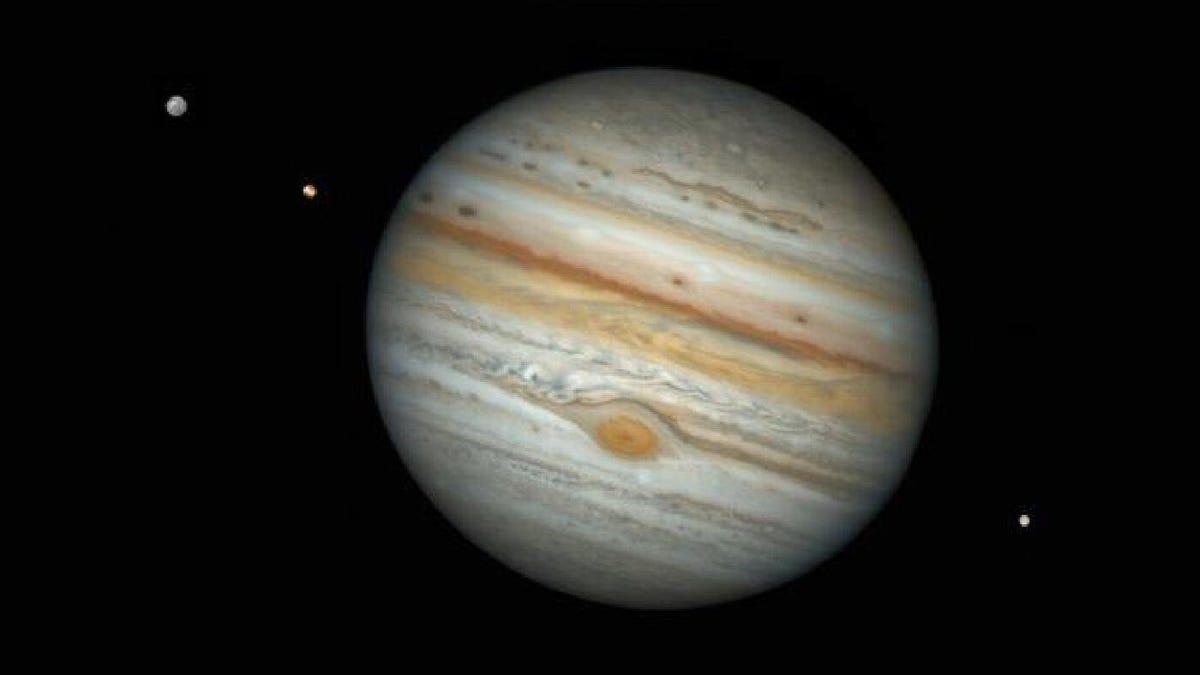Jupiter Overtakes Saturn for Bragging Rights to Most Moons in Solar System
A dozen recently confirmed new moons have boosted the giant planet's tally of orbital followers to 92.

Jupiter and three of its largest moons are seen in this photo, taken from Chile.
Some planets seem to have it all. Jupiter is the largest in the solar system, sporting a distinctive and fashionable red spot, subtle but elegant rings and dozens of moons. As if that weren't enough, it looks as though Jupiter has 12 more small moons in its orbit, bringing the total number of natural satellites within its grasp to a whopping 92.
Astronomer Scott Sheppard from the Carnegie Institution for Science in Washington, DC, reported observations of the system over the last two years that reveal a dozen new moons. The International Astronomical Union's Minor Planet Center has quietly been publishing the orbits of the new, unnamed moons in recent weeks, giving their existence the stamp of confirmation from humanity's officialdom on the matter.
A top down look at the many moons orbiting Jupiter.
Jupiter takes the crown from Saturn in terms of moon count. The rival ringed gas giant has 83 known moons.
All of the moons are probably too small to be named and take more than 340 days to orbit, according to Sky and Telescope.
It's entirely possible Jupiter's total count of cosmic followers is even larger. Glare from the huge planet can make it particularly hard to spot small objects, making it possible a number of smaller, unseen tiny moons also circle the giant one, waiting to be discovered.

